Peace Research Grant Awardees
2019-Present
These are all of the Peace Research Grant Awardees and projects funded from 2019 onward with links to their individual page.

Ilker Kalin (Turkey)
“The LGBTQ+ Participation and Polarization within and outside the Collective Dissent in Turkey" 2024
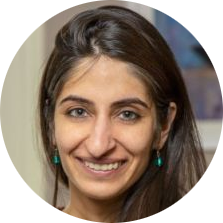
Aditi Malik (India)
“Mobilizing Public Protests against Rape: New Intersectional Insights from India" 2024

Angela Ajodo-Adebanjoko (Nigeria)
“The Role of Traditional Institutions in Mitigating Herder-Farmer Conflict in Northcentral Nigeria" 2023

Abosede Omowumi Babatunde (Nigeria)
“Women, Environmental Conflict and Peacebuilding in Extractive Communities in Nigeria’s Oil-rich Niger Delta" 2023

Mohammed Yimam Endris (Ethiopia)
“The Transformations, Challenges and Resilience of Conflict Resolution: The case of Abegar in North Eastern Ethiopia" 2023

Mario R. Cépeda Cáceres (Peru)
“Understanding violence and death spaces: an ethnographic reading of peace on the aftermath of the Peruvian Armed Conflict" 2022

Stephen Kapinde (Kenya)
“Mixing Religious Logics in Peacebuilding: An Integrated Inter-Faith Approach to Counter-
Violent Extremism in Kenya" 2022

Yesim Hanci (Turkey)
“The role of Turkish teachers in promoting peace and social cohesion through the inclusion of refugee students in Turkish public schools” 2022

Ardeth Maung Thawnghmung (Myanmar)
“How have some villages remained peaceful in violent-prone areas? The role of local administrators in post-coup Myanmar” 2022

Ekta Oza (India)
“Growing up in Conflict: Experiences, Friendships and Play for Children and Young People in Kashmir” 2022

Danielle Falk (USA)
“Agents of Peace: The Lived Experiences of Teachers Working Amidst Forced Displacement and Protracted Conflict in South Sudan and Uganda” 2021

Eria Serwajja (Uganda)
“‘Informal’ Land Demarcation Systems: A lifeline to De-escalation of Land Conflicts and Promotion of Peace in Post-conflict Northern Uganda” 2021
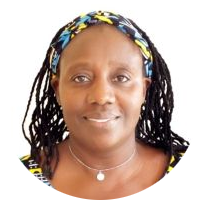
Resty Naiga (Uganda)
“Addressing Community-Based Water Conflicts through Collective-Action” 2021

Rajib Timalsina (Nepal)
“Performance and Arts for Peace-dialogues in Schools” 2021

Josie Gardner (USA and Australia)
“Mapping emergent peace systems through youth-led dialogue in Jammu, Kashmir & Ladakh” 2021

Haris Amin Zargar (Kashmir)
“Land Reform, Class Relations and Political Islam – Understanding the Rise of Jamaat-e-Islami in Kashmir" 2020

Joseph Muiruri Karanja (Kenya)
“Do Wildlife Conservancies Promote Peace in Pastoral Communities of Kenya?” 2020

Lino Ika (Uganda)
“An Assessment of the Risk of Violent Extremism in Uganda” 2020

Ana Luiza da Gama e Souza (Brazil)
“Vulnerable Migrants in Brazil: Towards Building Positive Peace through the Company’s Commitment to Human Rights” 2020

Susan Brewer-Osorio (USA)
“The Collective Reincorporation of Ex-Combatants in Colombia: Sustainable Communities and Abandoned Spaces” 2020

Rimona Afana (Romania and Palestine)
“Ecocide, Speciesism, Vulnerability: Revisiting Positive Peace in the Anthropocene” 2020
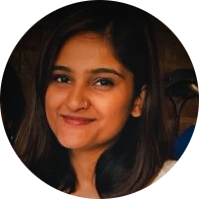
Niharika Pandit (India)
“Gender, Militarisation and Narratives of Home in Kashmir Valley” 2019

Ibrahim Sakawa Magara (Kenya)
“Regional conflict management in Africa: A study of the Intergovernmental Authority on Development (IGAD) peace mediation in South Sudan” 2019
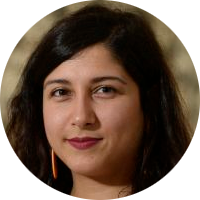
Nisan Alici (Turkey)
“Transitional Justice in an Ongoing Conflict: A victim-centered analysis of Transitional Justice mechanisms in the context of the Kurdish Conflict” 2019

Loes Loning (The Netherlands)
“Generation After: The Reconstitution of Kinship and Family Relations in Everyday Post-Genocide Rwanda” 2019

Maria Amjad (Pakistan)
“Staying the Course or Back Out? Understanding Rebels’ Commitment to Peace Processes” 2024

Dylan Forrester (USA)
“Gender and Reconciliation: A Case Study of Post-conflict Colombia” 2024

canan coskan (Turkey and Bakur Kurdistan)
“Anticolonial Resistance for a Dignified Peace in Diaspora: Identity and Understandings of Power among Kurds in Belgium” 2023
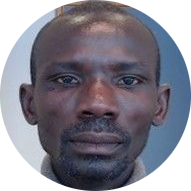
Emmanuel Viga (Uganda)
“The Role of Refugee Peace Initiatives and Everyday Assistance(s) as Tools for Harmonizing Land Conflicts Between Refugees and Hosts in Protracted Crisis” 2023

Orelia Jonathan (South Sudan)
“Teaching Toward Peace?: Teachers Experiences Teaching Secondary School History in South Sudan” 2022

Tarela Juliet Ike (Nigeria)
“Group-integrated Cognitive Behavioural Therapy to aid communities’ reintegration of deradicalized former Boko Haram members and their families in Nigeria: A randomised control trial” 2022
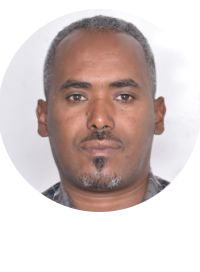
Tesfaye Gudeta Gerba (Ethiopia)
“Women in Intra-/Inter-Ethnic Conflicts and Peacemaking: The Case of Borana Women in Southern Oromiyaa, Ethiopia” 2022

Terence M. Mashingaidze (Zimbabwe)
“Zimbabwe’s Disregarded Victims and the Pitfalls of State Centered Peacebuilding Interventions in Africa, 1980-2017” 2021

Arianna Pacifico (USA)
“Promoting social cohesion and peace through policies of inclusion: A comparative case study of refugee education in Lebanon and Turkey” 2021

Pinar Temocin (Turkey and Japan)
“From Hiroshima to Fukushima: Grassroots Advocacy for Revitalizing Peace, Democracy, and Environmental Sustainability in Post-Fukushima Japan
” 2021

Helin Unal (USA)
“Examining the Complexity of Collective Victim Beliefs in the Context of Kurdish Diaspora: Implications for Attitudes towards Peace and Conflict” 2020

Diah Kusumaningrum (Indonesia)
“Two Nonviolent Actions a Day Keep the Dictators Away? Nonviolent Actions and Democratic (De)Consolidation in Indonesia” 2020

Bekele Melese Eshete (Ethiopia)
“Ethnic Conflict and Coexistence Strategies among Amhara and Kemant Communities in Amhara Regional State, Northwestern Ethiopia” 2020

Paidamoyo Chikate (Zimbabwe)
“Zimbabwe, the Constitutional Right to Peacefully Protest and the Elimination of Dissenting Voices: An Analysis of Peaceful Approaches to Freedom of Speech” 2020

Mudasir Amin (Kashmir)
“Performance of Memory in a Conflict Zone: The Future of/for Transitional Justice in Kashmir” 2020
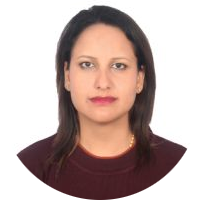
Anuja Sapkota (Nepal)
“A study of the Transitional Justice Process in Nepal: Narratives of the Victims” 2019

Julijana Mladenovska-Tesija (Croatia)
“Wartime Reconciliation Laboratory: Grass-root Peace and Reconciliation Initiatives in East Croatia during the Homeland War” 2019

Nasia Hadjigeorgiou (Cyprus)
“Assessing the effectiveness of the Committee on Missing Persons in building peace in Cyprus” 2019

Jess Bonnan-White (USA)
“Creating Change from Within: Exploring the Role of Policing Actors in Building Post-Conflict Community Peace” 2019

Sebastian Paalo Angzoorokuu (Ghana)
“Local Ownership, NGOs and Peacebuilding in Africa: A Comparative Study of Eastern Sierra Leone and Northern Ghana” 2019
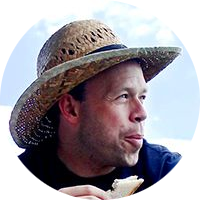
Peter Cousins (UK, Spain)
“The International Fellowship of Reconciliation (IFOR) and its Contribution to Civilian Diplomacy” 2019
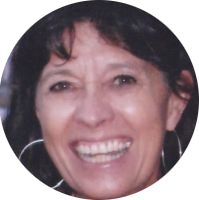
Monica Hirst (Brazil, Argentina)
“The Latin American presence in the Colombian Peace Process” 2019
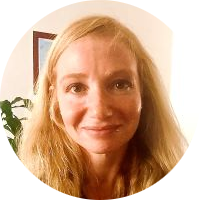
Valentina Bau (Italy, Australia)
“Understanding the link between Media, Civic Engagement and Peace with Palestinian Youth” 2019
